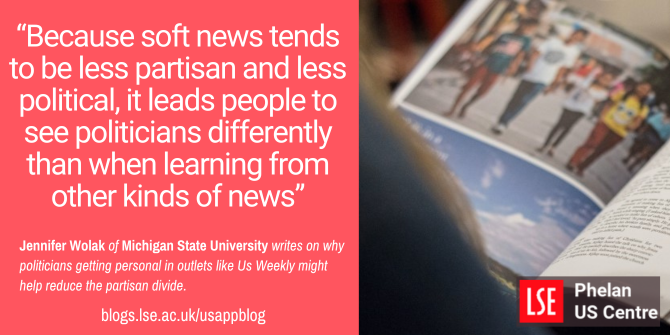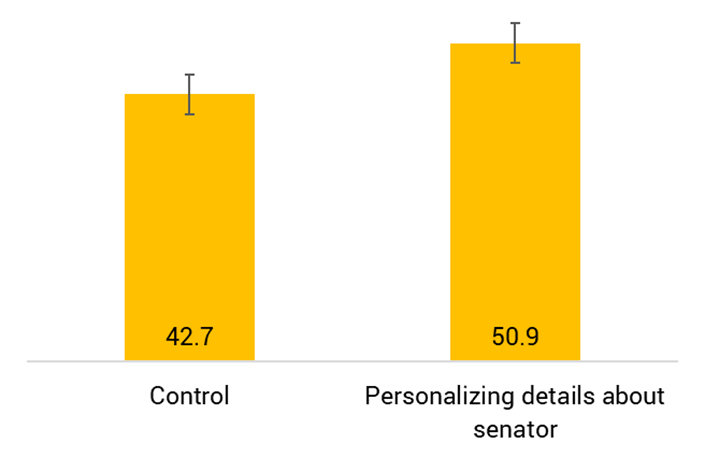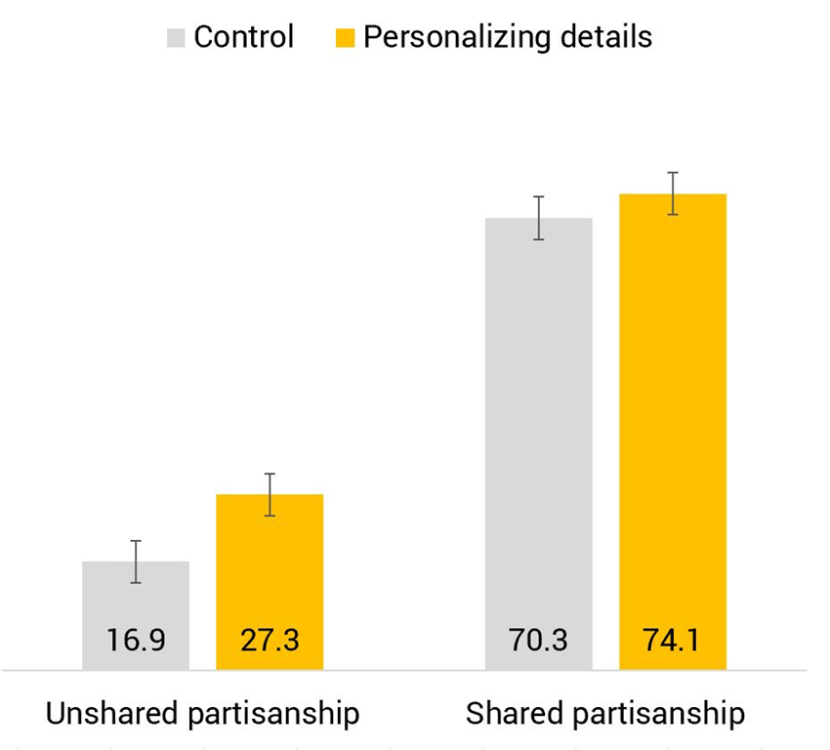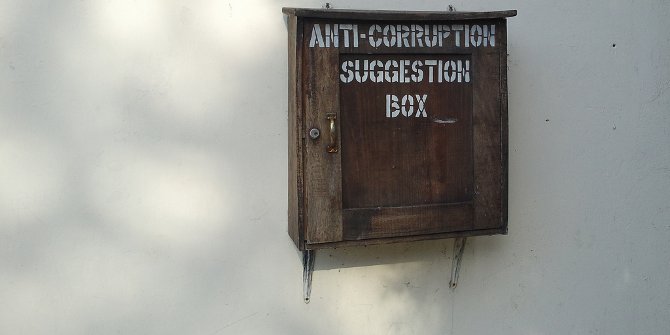When elected officials post on social media or make appearances on talk shows, they often end up sharing things that have little to do with politics. Rather than discuss their policy positions, they instead offer details from their personal lives, such as childhood anecdotes or pictures of their family. Some might dismiss these autobiographical details as puff pieces or fluff news, but in new research, Jennifer Wolak finds that learning about politicians’ personal stories can make people feel more warmly about their elected representatives.
In a polarized time, people’s views of elected officials are deeply divided along partisan lines. Overwhelming majorities of Democrats give a favorable rating of President Joe Biden, while most Republicans dislike him. When people think about politicians, their views are strongly determined by partisanship.
But when elected officials share personal details about their lives, it invites the public to see politicians not just in terms of their party or political choices, but also as people. By sharing details from their lives, politicians can build support with voters. Remarkably, these kinds of autobiographical details can depolarize the public and reduce party polarization. When members of the public read about politicians’ personal quirks, it boosts popularity – but especially among those who do not share their political stances.
Reading Us Weekly to see how politicians’ personal details can move public opinion.
I show this in new research inspired by a column in the celebrity entertainment magazine Us Weekly. Each week, the magazine features a column, “25 Things You Don’t Know About Me” where people in the public eye share fun facts about themselves, such as their favorite foods, first job, or hobbies. Most of the people who contribute to the column are celebrities – reality television stars, actors, comedians, athletes, or musicians. But over the years, several politicians have also contributed to the column.
In 2010, Donald Trump shared his list of “25 Things,” noting that his wife cuts his hair and that he likes to read history, biographies and the New York Post‘s Page Six. In other columns, President Joe Biden expressed his love of Corvettes, former Secretary of State Hillary Clinton lamented not being able to carry a tune, and Kentucky Senator Rand Paul mentioned his childhood hobby of coin collecting.
I drew on the list Texas Senator Ted Cruz provided to the magazine in 2016 to see whether these kinds of apolitical autobiographical profiles shift public attitudes. I designed an experiment that varied whether people read personalizing details about an elected official and whether that politician was liberal or conservative. In the study, some read five fun facts about Ted Cruz taken from the list he shared with Us Weekly. Others were given a similar list about Senator Bernie Sanders, populated with details about his favorite TV shows, his childhood, and his family.
In a national survey, respondents were asked to share their rating of either conservative Ted Cruz or liberal Bernie Sanders. Half were given biographical details to read before sharing their opinion, while the other half just shared their opinion of the respective senator. I found that when politicians talk about their personal lives, they boost their popularity in the electorate. As shown in Figure 1 below, people who read personal details rated the senator eight points more warmly on a 0-to-100 rating scale compared to those who did not read any biographical info. Even though Cruz and Sanders are familiar and polarizing political figures, reading just a few personal details about them contributed to warmer evaluations.

Photo by Blair Fraser on Unsplash
Figure 1 – Reading personal details makes people feel warmer about politicians

How this can help reduce polarization
I also considered the differences between how Democrats and Republicans evaluated these biographical details. In Figure 2, I compare the effects of the personalizing treatment for those who share the same party leanings as the politician they had read about versus those who do not. I find that reading biographical details about the senators led to warmer evaluations among members of both parties, but the effects were greatest among those who do not share the same partisan leanings as the politician they read about.
Figure 2 – Personalizing politicians and partisan lean

This means that personal details like these can narrow the gap between how Democrats and Republicans see elected officials. When these biographical details were absent, ratings of the senators were polarized along partisan lines, with a 54-point gap between the ratings of co-partisans and opposing partisans. When people were given biographical details, this partisan gap narrowed to 47 points. Even though there are strong differences between how people see senators from their own party versus the opposing party, personalizing details about politicians undercut partisan divides.
Likeability and the value of soft news about politicians
Politicians benefit from sharing autobiographical details about their lives, their families, and their interests. Being likeable is useful in politics. This helps explain why politicians choose to post personal details on their social media accounts and share personal anecdotes in talk shows.
There is value to “soft news.” When people learn about politics from talk shows or tabloid coverage, they encounter different kinds of information than what they see in traditional news outlets. Because soft news tends to be less partisan and less political, it leads people to see politicians differently than when learning from other kinds of news.
One possible way to reduce party polarization would be to return to a candidate-centered campaign style. If political campaigns focused more on the candidates as people rather than replaying familiar partisan divides, views of elected officials would be less polarized along party lines.
- This article is based on the paper, ‘How Political Content in Us Weekly Can Reduce Polarized Affect Toward Elected Officials’ in PS: Political Science & Politics:.
- Please read our comments policy before commenting.
- Note: This article gives the views of the author, and not the position of USAPP – American Politics and Policy, nor the London School of Economics.
- Shortened URL for this post: https://bit.ly/3t9vUS7






